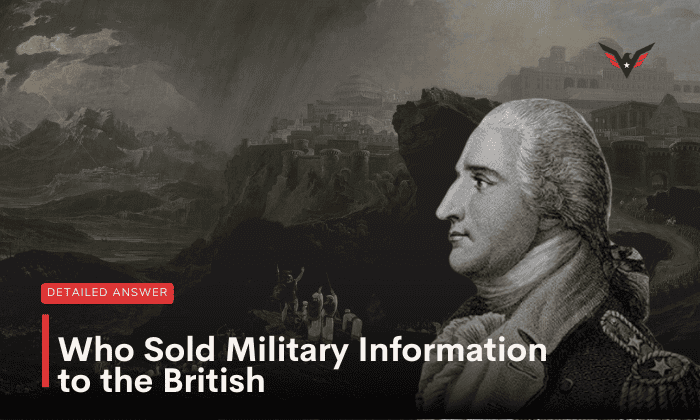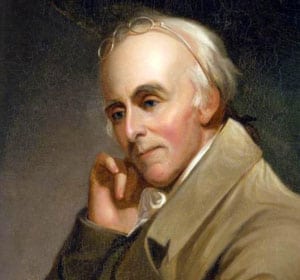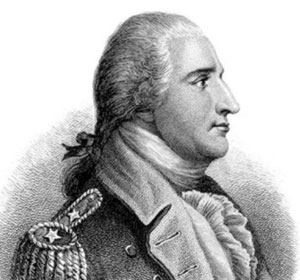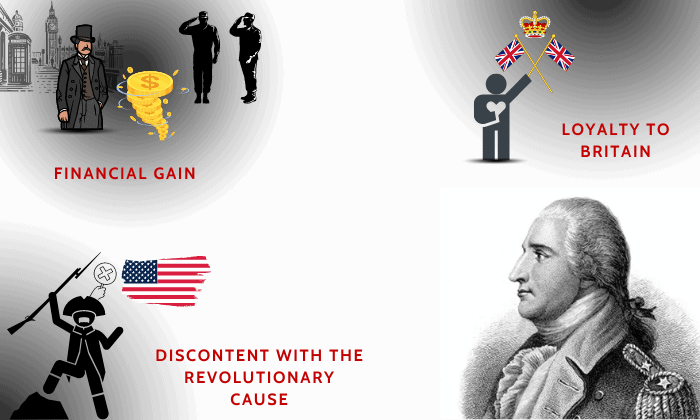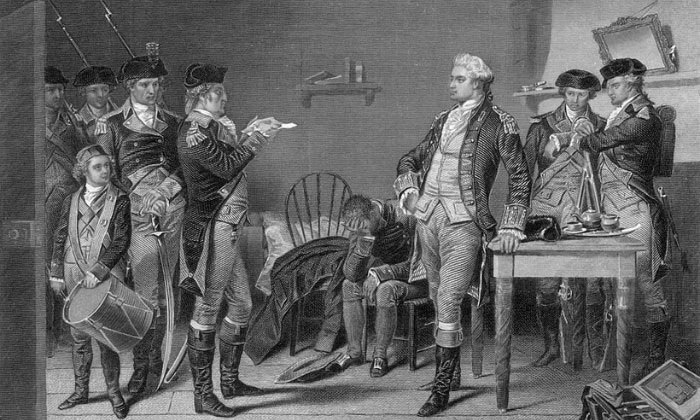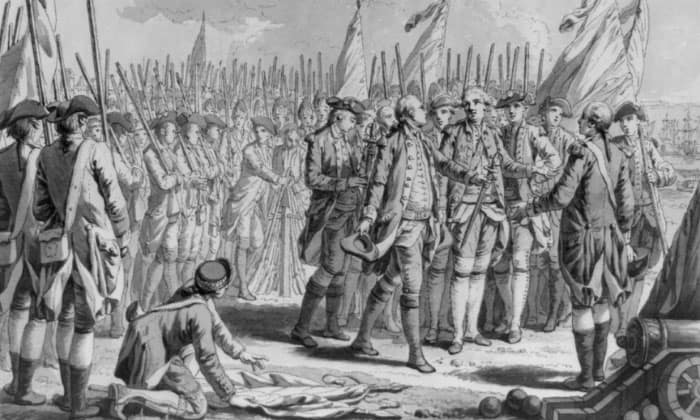In the annals of history, certain events bear witness to the treacherous acts that have shaped nations. One such incident that reverberates through the corridors of time is the selling of military information to the British during the pivotal year of 1775.
Benjamin Church and Benedict Arnold were two infamous examples. However, the identities of all individuals selling information to the British during this period may not be fully known or documented.
In this blog post, we will answer “Who sold information to the British in 1775?” and provide other relevant information. Read on!
Table of Contents
Who Sold Information to the British in 1775?
1. Historical Background
In 1775, the relationship between the American colonies and Britain deteriorated significantly due to colonial opposition to the latter’s increasing control, leading to the outbreak of armed conflict and the start of the American Revolutionary War. During this time, several individuals provided intelligence or support to the British.
2. Famous Revolutionaries’ Cases
Benjamin Church
Benjamin Church had been an early supporter of the American cause against British rule. However, he secretly began providing intelligence to the British in 1775.
Among the information sold was the detail of colonial military plans and the location of the Patriots’ arsenals, which prompted the British to invade Lexington and Concord. Although the man claimed that he fed the British misinformation, there was concrete evidence that he did indeed leak the American rebel force’s military secrets.
As the British were in control of Boston at the time, Church sent one of his encrypted letters to Major Cane via his former mistress. This letter was soon intercepted by the Colonials. As it seemed suspicious, the matter was soon informed to George Washington.
Church was arrested and imprisoned in 1775 for providing intelligence to the British. However, due to law dilemmas, he was not found guilty of treason or any specific charges related to selling information. Church was later released and went on to live in exile.
Benedict Arnold
Benedict Arnold initially fought for the American cause and played a significant role in several key battles. However, Arnold eventually became disillusioned with the American cause.
In 1780, Arnold conspired with British Major John André to surrender the strategic fort at West Point to the British. He provided information about the fort’s defenses and agreed to hand it over to the British in exchange for a substantial sum of money.
How was Benedict Arnold discovered? The plot was exposed when André was captured by American forces with incriminating documents. Arnold managed to escape to British lines and joined the British army as a brigadier general.
Benedict Arnold’s betrayal was a significant blow to the American side, as he had been a respected and talented military leader. His name has become synonymous with treason and betrayal in American history.
Motives for Selling Military Intelligence
The motives for selling military intelligence to the British in 1775 varied among individuals involved. Here are a few:
- Financial Gain: Some individuals, such as Benedict Arnold, were offered substantial sums of money or other incentives by the British in exchange for providing information about American military plans, strategies, or weaknesses.
- Loyalty to Britain: There were colonists who remained loyal to the British crown. These individuals, known as Loyalists or Tories, believed in the British government’s authority.
- Discontent with the Revolutionary Cause: Not all colonists supported the American Revolution. Some individuals disagreed with the goals, methods, or leadership and felt alienated or marginalized by the Continental Congress.
Consequences of Selling Military Intelligence
- Loss of Trust and Reputation: Individuals who were discovered selling military intelligence to the British faced severe repercussions within their communities. They were considered traitors to the American cause and often faced public condemnation and ostracization.
- Legal Consequences: Individuals who sold military intelligence could face legal actions, such as being arrested and tried for treason. If found guilty, they could face severe punishments like imprisonment or execution.
For example, Moses Dunbar, who shared information about American privateer activities with the British, was caught, tried for treason, and executed in 1781.
- Impact on Historical Legacy: The consequences of selling military intelligence to the British extended beyond the immediate time period. Those involved would be remembered in history as traitors, and their actions would be seen as a betrayal of the ideals and aspirations of the American Revolution.
Preventing Future Incidents
After the American Revolutionary War, the US military implemented various measures to prevent similar incidents, such as:
- Confidentiality and Secrecy Protocols: Strict protocols were established to protect sensitive information, including codes and encryption.
- Discipline and Punitive Measures: Offenders found guilty of information-selling faced strict punishments to deter potential offenders.
- Background Checks and Vetting: Thorough screening processes were implemented to identify security risks before recruiting individuals.
- Improved Security and Communication Networks: Investments were made in enhancing security infrastructure and communication networks.
- Education and Training: Personnel received education and training on the importance of information security and how to handle classified materials.
Frequently Asked Questions (FAQs)
What kind of military information was sold to the British?
The specific details regarding the military information sold to the British in 1775 may vary depending on the individuals involved and the specific circumstances.
However, in general, it usually entailed information about the size, location, composition, and movements of American military units or about planned attacks.
How to identify and prevent military espionage?
In 1775, identifying and preventing military espionage were approached by implementing strict security measures, establishing counterintelligence operations, securing communications with codes and encryption, and promoting vigilance and suspicion within military ranks.
Did the US have spies?
Yes. Just as there were British spies, there were American war spies. They were sometimes referred to as “Washington’s spies.” Some well-known spy names of America’s first spies are Nathan Hale, James Armistead, and Enoch Crosby.
Who warned that the British were coming in 1775?
The warning is often attributed to Paul Revere. On the night of April 18, 1775, Revere set out on horseback to alert American colonists about the approaching British troops.
Who won the Battle of Bunker Hill?
The British won the Battle of Bunker Hill due to their possession of bayonets on their muskets, which was the first major war of the American Revolution.
Who voted to boycott British trade in the period leading to the American Revolutionary War?
The Intolerable Acts, a set of laws passed by the British Parliament in 1774, aimed to quell unrest in colonial Boston by implementing measures such as the closure of the port and the establishment of martial law. In reaction to these acts, a group known as the Sons of Liberty spearheaded colonial protests and issued a call for a boycott.
Conclusion
Who sold information to the British in 1775? The two most popular answers you’ll come across are Benjamin Church and Benedict Arnold. Needless to say, their action had left a dire impact on the water efforts, as the information they sold allowed the opposition to gain an edge over the Americans.

I am Everett Bledsoe, taking on the responsibility of content producer for The Soldiers Project. My purpose in this project is to give honest reviews on the gear utilized and tested over time. Of course, you cannot go wrong when checking out our package of information and guide, too, as they come from reliable sources and years of experience.

